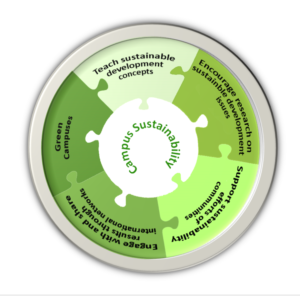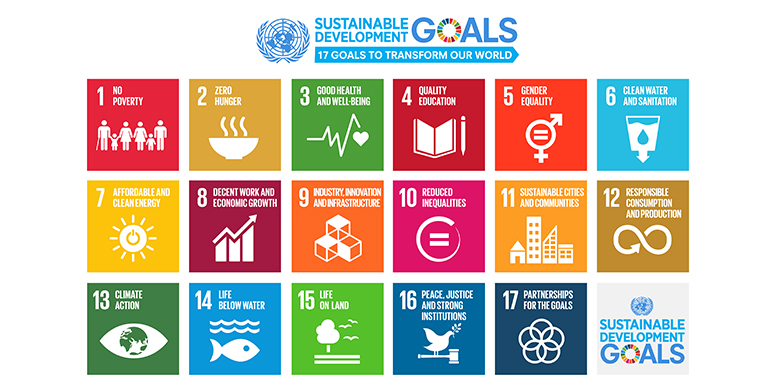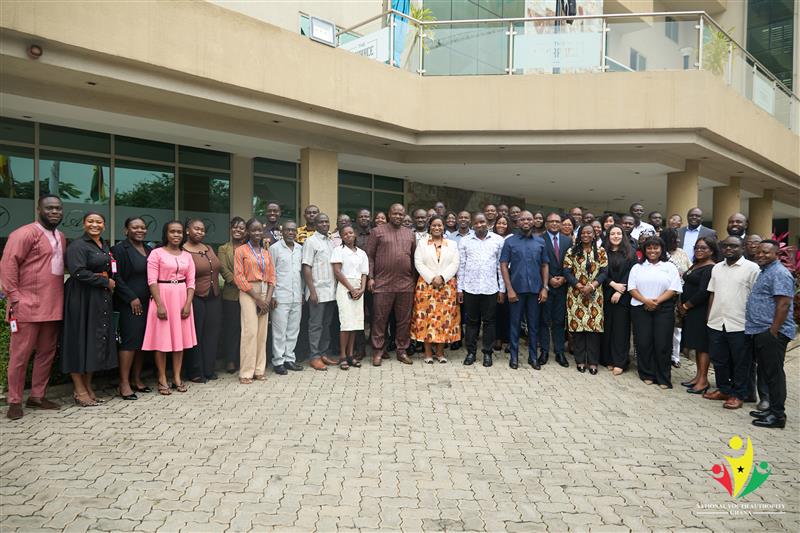“Educational institutions versus sustainable development”
July 21Universities are in a prime position to promote sustainable development, writes Nutifafa Geh, 30, a Commonwealth Correspondent from Ho in Ghana, and can champion a “holistic” approach to education and action for a sustainable future.
Sustainable development teaches that development should be pursued in a manner whereby the needs of the present will be met without compromising the ability of future generations to meet their own needs. It is a global call for action and all institutions, especially educational institutions, have a key role to play in this grand scheme.
Students are also key stakeholders when it comes to achieving the sustainable development goals, and as present and future decision makers in society they need knowledge and skills to be able to contribute to building the World We Want. No organisation is better positioned to fill this gap than educational institutions (EIs). There are vast opportunities for EIs to invest in both physical and non-physical structures to create the needed environment at campuses for students to have first-hand experience about what it means to ‘go green’.
At the higher education institutions level, the Higher Education Sustainability Initiative (HESI) was created as run-up to the United Nations Conference on Sustainable Development (Rio+20) in 2012. This initiative rallied EIs across the globe to make voluntarily commitment to championing a holistic education, research and actions for a sustainable future .
 From Ghana, University for Development Studies is one university that signed commitment to the HESI. Although Ashesi University College did not appear on the list of signatories on HESI website, the university is making great strides and building strong partnerships for a sustainable future. In May, Ashesi in partnership with the World Bank Group, the governments of Denmark and the Netherlands, and Ghana’s Ministry of Environment, Science, Technology and Innovation (MESTI) inaugurated the Ghana Climate Innovation Center (GCIC) located on their campus.
From Ghana, University for Development Studies is one university that signed commitment to the HESI. Although Ashesi University College did not appear on the list of signatories on HESI website, the university is making great strides and building strong partnerships for a sustainable future. In May, Ashesi in partnership with the World Bank Group, the governments of Denmark and the Netherlands, and Ghana’s Ministry of Environment, Science, Technology and Innovation (MESTI) inaugurated the Ghana Climate Innovation Center (GCIC) located on their campus.
This technology hub is being managed by a consortium led by Ashesi University College with Ernst & Young, SNV Netherlands Development Organization, and the United Nations University Institute for Natural Resources. The above is a classic example of the needed partnership and collaborative action that should be happening between HEIs, government and the corporate sector in the pursuit of the World We Want.
Nowadays, organisations are making conscious effort every moment to prove their products and services are ‘greener’ so they could attract larger market share and reputation. Unfortunately, sustainable development (SD) sometimes becomes a cliché rather than a good working framework for development. There are some also who don’t believe in climate change, and for that matter the tenets of SD and the need to develop sustainably.
In fact, a person doesn’t necessarily have to believe in climate change to take action for sustainable development. In ordinary terms, the pursuit of sustainable development is the pursuit of excellence: why settle for less if there is a better and probably a best way of doing something?
The question is, should EIs not also be pursuing excellence and leading by example? The educational institutions versus sustainable development equation can be simply solved by embracing the tenets of campus sustainability. It is said that it’s better late than never, hence there is still opportunity for institutions which have delayed initiating and implementing strategy action plans for a sustainable future. Although it will require capital investment and bring paradigm shift where business will not be done as usual, the consequent benefits will be enormous and worth the price.
For institutions that start now, the future is very bright. They will become the pacesetters and trailblazers in the sector. They will be the ones scoring well when it comes to institution reputation, and student enrolment.
The Association of Commonwealth Universities is hosting the ACU Conference of University Leaders 2016 from 27-29 July, 2016, in Ghana under the theme “Defining the responsible university: society, impact and growth”. The three-day conference will congregate authorities responsible for the leadership and management of higher education institutions. Is it expected that discussions will be “focusing on the impact of universities on innovation, research and development, civil society, funding and access, employment, and the role and place of government and the corporate sector in building the skilled leaders of tomorrow”.
For an observer like myself, I am looking forward to knowing the outcomes of the conference, which will benefit Ghana in devising a better chart for campus sustainability.
The call for sustainable development, and for that matter campus sustainability which applies to educational institutions, is not a vain pursuit, but a bid for responsible living which results in holistic development. And being the ‘think tanks’ in society, it is an opportunity for EIs to lead by example. The actions they take now will determine if they will survive in the world we would have built in the years to come.
Photo credit is: United Nations, Division for Sustainable Development (DSD). Available at: http://goo.gl/PQO7zg)
Photo credit: Developed from HESI 2012 report (Available at: http://goo.gl/GJkVz3)
…………………………………………………………………………………………………
About me: My name is Nutifafa and I am for students (#Iam4Students). I believe what wings are to a bird is what education is to every boy and girl whether young or old. For that reason, my interest in education is very keen, and it is a joy for me to give a hand in empowering students to reach their full potential.
I love life and photography, and I believe I can make students smile by giving them the reason to.
…………………………………………………………………………………………………
Opinions expressed in this article are those of the author and do not necessarily represent the views of the Commonwealth Youth Programme. Articles are published in a spirit of dialogue, respect and understanding. If you disagree, why not submit a response?
To learn more about becoming a Commonwealth Correspondent please visit: http://www.yourcommonwealth.org/submit-articles/





